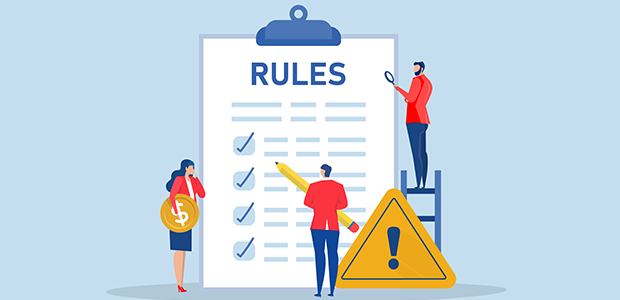
The founder’s guide to UK employment law
Hiring your first employees marks a major milestone for any startup, reflecting your business's growth. However, expanding your team requires a deeper understanding of HR processes and employment law to avoid common pitfalls. Sally Gwilliam, Employment Partner at Harper James talks you through the essential areas you need to know as your business grows including employment status, contracts, HR compliance, IP protection, and dealing with resignations.
Employment status
As your business scales, correctly classifying your staff is crucial. Employment status – whether employee, worker, or self-employed contractor – affects their rights and how they’re taxed. Employees have the broadest protections, including rights to unfair dismissal claims and redundancy payments. Workers have more limited rights, while contractors have the least protections and handle their own tax.
Misclassifying staff can result in significant legal and tax liabilities. For example, hiring someone as a contractor but treating them as an employee could lead to unpaid entitlements or tax penalties. It's important to ensure that staff classifications reflect their actual roles.
Employment contracts
When you start hiring staff, template contracts may well be enough. But as your company grows, your contracts should evolve to protect your business interests, especially for senior or key employees. Basic templates often lack clauses related to intellectual property (IP), confidentiality, and restrictive covenants, which become vital as your business develops.
Tailored employment contracts ensure you are better protected on topics including ownership of your IP, enforceable confidentiality agreements, and clear post-termination restrictions. These help safeguard sensitive information and prevent employees from joining competitors and sharing your trade secrets.
HR compliance
Outsourcing HR is common in the early stages, but as your team expands, you will inevitably need more than just basic services. Complex issues like discrimination claims, grievances, and employment tribunal cases require expert legal advice. Recent developments in employment, immigration, and data protection laws also increase compliance demands.
Mistakes such as holiday pay calculations or pre-employment checks can lead to costly penalties and reputational damage. It’s crucial to have a robust HR compliance strategy in place. You will need specialist legal support to mitigate risks and ensure your policies align with legal obligations.
Intellectual property and confidential information
Your business’s intellectual property (IP) and confidential information, such as software, product designs, and trade secrets, are among your most valuable assets. Employment contracts should clearly state that any IP created by employees belongs to the company. Confidentiality clauses should prohibit the sharing of sensitive information during and after employment.
When dealing with third parties non-disclosure agreements (NDAs) are essential to protect your IP when negotiating with partners or investors. Securing legal guidance on NDAs and contract clauses will help shield your business from unnecessary risks.
Retaining talent
Retaining top performers is crucial, especially in startups where early employees hold significant knowledge. Employee turnover can disrupt operations and increase costs. Competitive salaries, benefits, and a positive work environment help attract and retain talent. Regular benchmarking of salaries and offering retention bonuses during critical business periods can boost loyalty.
Employee development plans and leadership training also improve retention by supporting career growth and fostering strong managerial relationships.
Discrimination and harassment
UK equality laws protect employees from discrimination based on characteristics like race, sex, and disability. Failing to comply can lead to costly legal claims. It’s vital to establish an inclusive workplace with clear policies on equality, anti-harassment, and reasonable accommodations for disabilities.
Regular diversity and inclusion training, alongside clear reporting procedures for complaints, are important steps to ensure compliance and maintain a positive work culture.
Employee relations
As your team grows, workplace disputes become more common. Addressing underperformance and misconduct through clear policies and procedures can prevent escalation. Regular feedback, transparent communication, and a culture of open dialogue help maintain good employee relations.
When disputes arise, handling them carefully is essential. Mismanaging issues like disciplinary actions or grievances could lead to legal claims. Consulting an employment solicitor in complex cases will help you navigate the risks and ensure compliance with employment law.
Resignations and dismissals
When an employee resigns or is dismissed, protecting your business is key. Review contracts for clauses like garden leave or post-termination restrictions to minimise disruption and prevent employees from joining competitors. Collect company property and remind employees of their ongoing confidentiality obligations.
Dismissals must follow a fair process, especially if the employee has more than two years’ service, to avoid claims for unfair dismissal. Legal advice can help ensure compliance and protect your business from potential legal action.
Remote working
Remote work has become more common, but it brings new challenges. Employers must ensure home workstations meet health and safety requirements and that remote working complies with any legal or insurance obligations.
Clear policies on availability, communication, and confidentiality are vital to managing remote teams effectively. If staff work overseas, be aware of potential tax and legal complications, including the accrual of local employment rights and data protection concerns.
As your business grows, HR challenges will become more complex, and off-the-shelf solutions may no longer be enough to protect you and your employees. Tailoring your employment practices to meet legal requirements will help protect your business. Employment law is evolving rapidly, so staying up to date and seeking expert advice when needed is essential.
For more startup news, check out the other articles on the website, and subscribe to the magazine for free. Listen to The Cereal Entrepreneur podcast for more interviews with entrepreneurs and big-hitters in the startup ecosystem.

